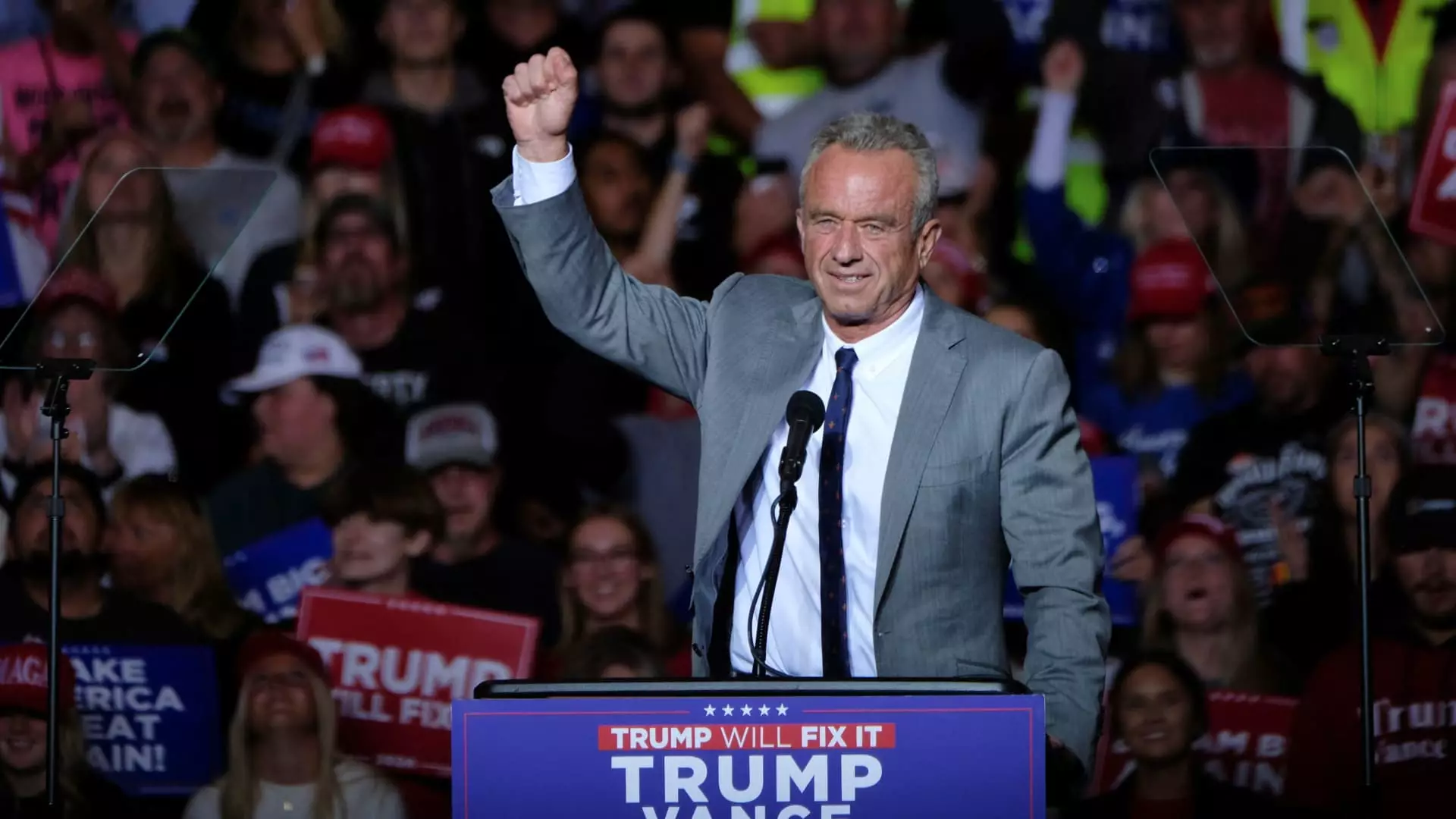Recent stock market fluctuations reveal a significant trend among investors closely monitoring potential shifts in public health policy following the election of Donald Trump and the nomination of Robert F. Kennedy Jr. as the Health and Human Services (HHS) secretary. On a trading day recently, shares of Henry Schein, a notable dental care supplier, saw a surge of nearly 5%. This rise was attributed to investor speculation about Kennedy’s possible endorsement of removing fluoride from public water systems across the United States. Such a drastic policy change could lead to a sharp increase in dental visits as consumers would seek alternative means to combat tooth decay.
The increase in shares wasn’t isolated to Henry Schein. Competitors like Dentsply Sirona and Envista also experienced positive movement in their stock prices during the same trading session. The implications of Kennedy’s nomination have prompted analysts to reassess the landscape of dental hygiene and products as the healthcare sector braces for potentially dramatic policy shifts under a Trump administration.
Fluoride has long been a contentious topic within public health discussions. Advocated for its role in reducing cavities and promoting dental health, fluoride’s effectiveness is well-documented. However, the mineral has also become a focal point in debates led by various local communities that have opted to discontinue fluoridation programs, citing concerns over health and environmental implications. Kennedy’s vocal opposition to water fluoridation underscores a significant shift in the health policy narrative and has raised questions about the future of such public health initiatives.
Despite Kennedy’s need for Senate confirmation, analysts are already predicting which sectors might thrive should his recommendations take form. According to Gordon Haskett, a firm specializing in event-driven research, a move to eliminate fluoride from drinking water could escalate demand for dental services, as consumers would be compelled to seek out dental care more proactively. This prediction delineates a potentially profitable future for companies like Henry Schein and its peers.
Market Reactions and Broader Implications
On a broader scale, the healthcare sector is experiencing turbulence following Kennedy’s nomination. For instance, the Health Care Select Sector SPDR Fund (XLV) has seen a decline of approximately 3.5% since the start of November. This downturn contrasts sharply with a more favorable trajectory for the S&P 500, which has ascended over 3% within the same timeframe. Interestingly, while many healthcare stocks faced declines due to the announcement, dental companies appeared to be among the few beneficiaries, highlighting a significant divergence within the sector’s performance.
Moreover, the proposal of Kennedy’s policies has generated unease among pharmaceutical companies, particularly due to his public skepticism regarding vaccines. Many investors reacted by offloading stocks of drug manufacturers, healthcare insurers, and contract research organizations. The ripple effects prompted concerns across various health-related sectors, including those tied to processed foods and advertising.
While the speculation surrounding Kennedy’s policies has fueled immediate buy-in for dental stocks, analysts caution that any substantive regulatory changes may take years to actualize. The intricacies of U.S. public health policies often involve layers of bureaucracy, and regulatory frameworks traditionally lie more under the purview of the Environmental Protection Agency (EPA) rather than HHS.
Investors, therefore, must navigate these uncertainties while contemplating the true impact of potential policies on the dental industry. Despite the optimistic readings from market participants, the long-term ramifications of Kennedy’s leadership may take time to unfold, and the potential consequences for dental companies, including Henry Schein and others, could fluctuate significantly based on broader health trends and regulatory actions.
While dental stocks may bask in a temporary spotlight following Kennedy’s appointment, the full effects of policy changes in public health remain to be seen, and those investing in this sector should proceed with great caution and a keen awareness of the evolving landscape.

Leave a Reply